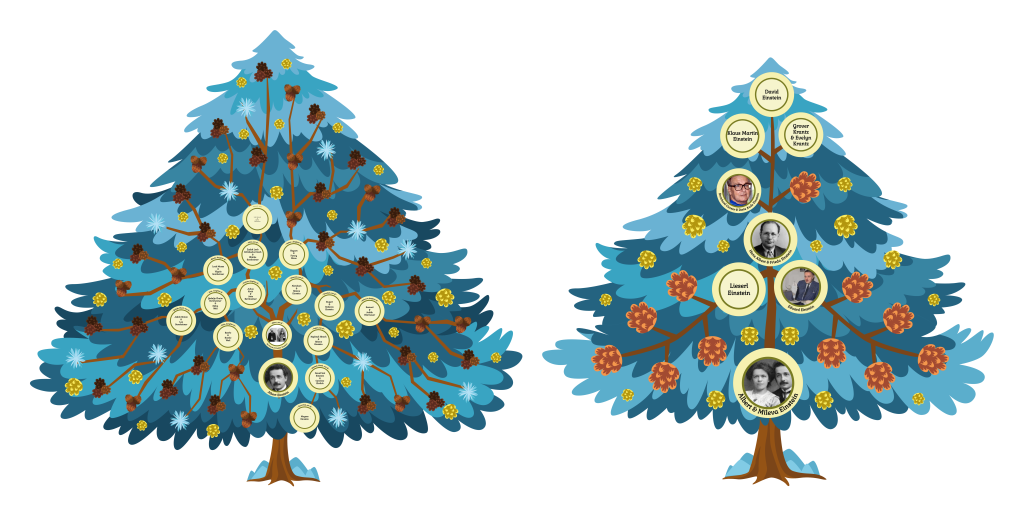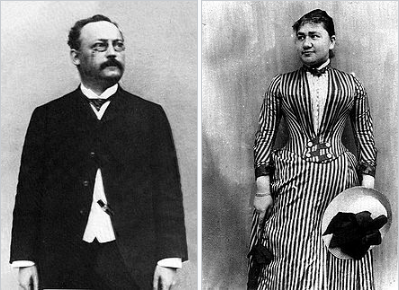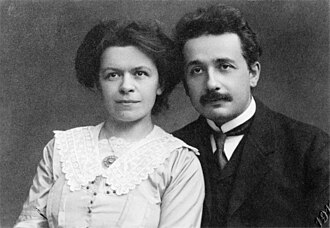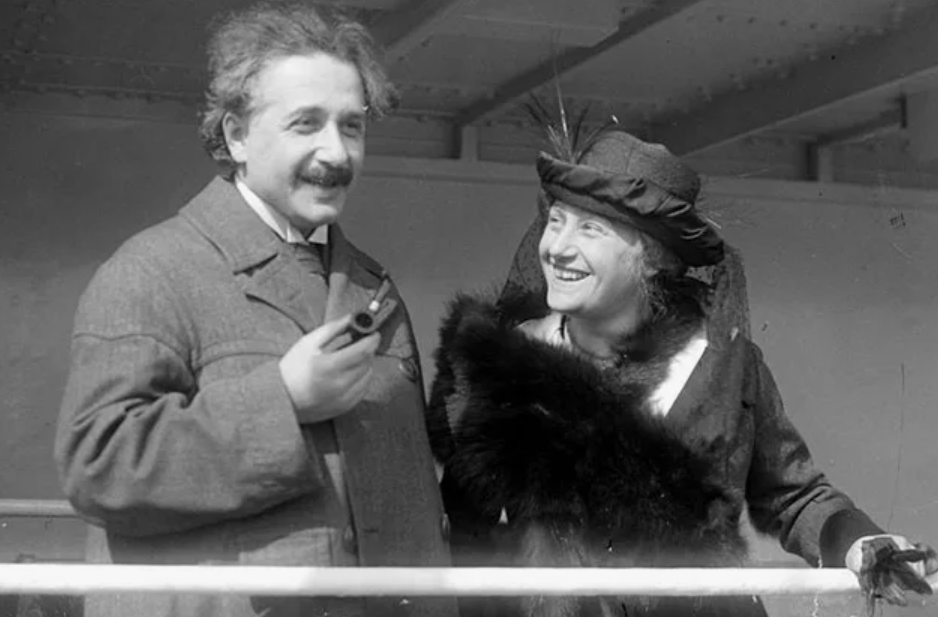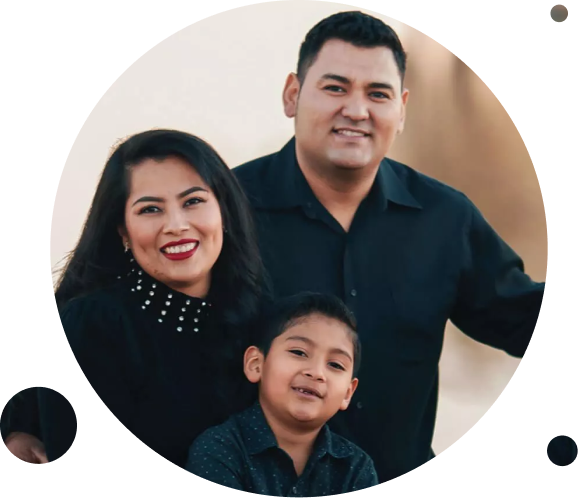Albert Einstein’s Family Tree: A Journey through His Ancestral Roots
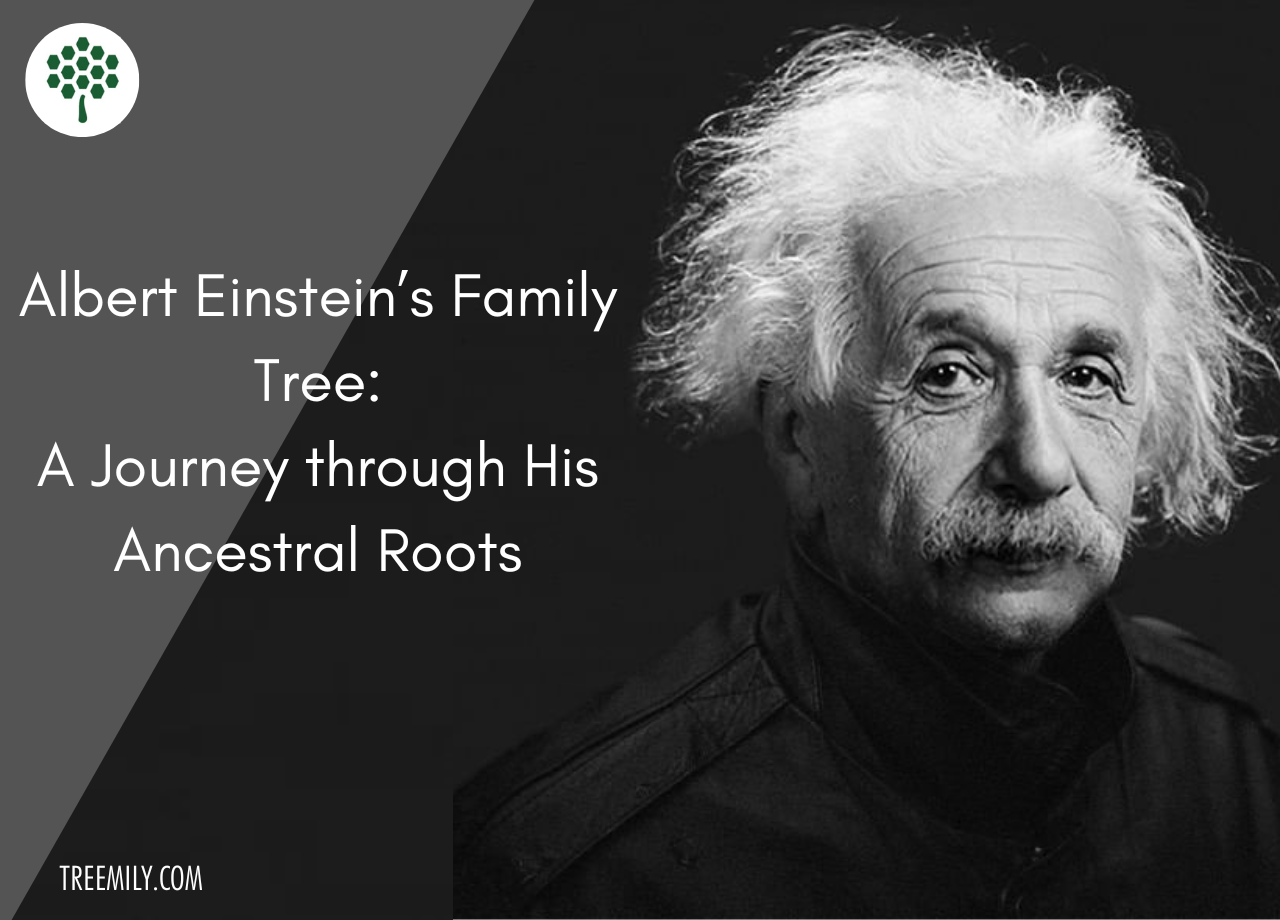
When you hear the name Albert Einstein! What’s the first thing that comes to mind? Maybe it’s his incredible genius, the iconic equation (E=mc²), or the groundbreaking theory of relativity that forever changed our understanding of the universe. Einstein wasn’t just a scientist—he was a global icon whose work has inspired generations.
But have you ever stopped to wonder about the man behind the legend? Who was Albert Einstein before he became the face of brilliance? His personal story—rooted in his ancestry—is just as intriguing as his scientific achievements. The Albert Einstein family tree is a tapestry of rich history, complex relationships, and fascinating characters who all played a part in shaping the man we know today.
Let’s start at the roots of his family tree—Einstein’s great-great-grandparents—tracing their stories through the generations, all the way to his children and grandchildren. Along the way, we’ll uncover his deep Jewish heritage and explore the family dynamics that influenced his upbringing. Each branch of Albert Einstein’s family tree reveals a unique and captivating story about the people who left an indelible mark on his life.
So, what does Albert Einstein’s family tree today look like? What remains of Albert Einstein’s family tree now, in modern times?
Let’s jump straight into the legacy of his family and discover how their stories continue to intrigue and inspire us even now.
Jewish Ancestry: The Einstein Family Origins
Early Life and Jewish Heritage
Albert Einstein’s roots are deeply tied to his Jewish heritage—a cornerstone of his identity that shaped his upbringing and influenced his worldview. Born to Hermann Einstein and Pauline Koch in Ulm, Germany, in 1879, Albert grew up in a secular Jewish household. While his family wasn’t particularly religious, their Jewish identity was an undeniable part of their lives, threading through traditions, values, and community connections.
The Einsteins came from a lineage of modest tradespeople and merchants. Albert’s paternal grandfather, Abraham Einstein, worked as a textile trader, while his maternal grandfather, Julius Koch, was a prosperous grain merchant. These family roles not only provided a stable foundation for young Albert but also embedded him in the fabric of Jewish community life.
However, growing up Jewish in 19th-century Germany came with its challenges. Anti-Semitic attitudes were pervasive, shaping the social and political climate of the time. Despite this, Albert’s family remained resilient, carving out their path in a world that wasn’t always welcoming. This resilience would later echo in Albert’s own life as he faced and overcame immense challenges during his career.
Though Albert distanced himself from organized religion during his teenage years—famously calling it “childish superstition”—he never abandoned his Jewish identity. His deep sense of justice, advocacy for peace, and eventual support for Zionism were all influenced by his heritage. Einstein once said, “My relationship to the Jewish people has become my strongest human bond.”
In the story of the Einstein family, Jewish heritage wasn’t just a matter of faith—it was a lens through which they viewed the world, embraced their culture, and instilled values that would resonate through Albert’s remarkable life and beyond.
The Albert Einstein Family Tree Chart
Albert Einstein’s family tree is as fascinating as the man himself—full of rich history, strong personalities, and the cultural influences that shaped one of the greatest minds in history. From his entrepreneurial father, Hermann Einstein, to his nurturing mother, Pauline Koch, and beyond, each branch of his family tells a story. His children and grandchildren carried forward parts of his legacy, creating a lasting impression on the world.
But what if you could easily create a family tree of your own? Tools like Treemily make it simple to trace your lineage, uncover stories, and even preserve memories for future generations.
Here’s how you can get started:
- Define Your Family Size
Decide how many generations you want to include. Are you focusing on immediate relatives—like Einstein’s parents—or tracing deeper roots, perhaps back to your great-great-grandparents? Setting boundaries makes the process more manageable.
- Choose Who to Include
Not everyone needs a spot on the chart. Select relatives whose stories matter most—similar to how Einstein’s tree highlights key figures like his sister Maja Einstein, who shared a close bond with him, and his children, Hans Albert Einstein and Eduard Einstein, who had their own remarkable journeys.
- Dive into Historical Records
The further back you go, the more challenging it gets—but also the more rewarding. Look for birth certificates, marriage records, census data, or even handwritten letters (yes, those old family albums in the attic do matter!). These details bring authenticity and depth to your tree.
- Ask Family Members for Stories
Some of the best information isn’t found in documents—it comes from family members. Reach out to your grandparents, aunts, or uncles. You might discover stories or photographs that fill gaps or bring your chart to life. [Did Grandpa travel across the country by train for work, or was that just a family rumor?]
- Question All Sources
Don’t take everything at face value—whether it’s an old record or Aunt Susan’s vivid memory. Cross-check details to ensure your family tree remains as accurate as possible.
- Use Treemily to Bring It All Together
Once you’ve gathered your details, Treemily simplifies the next steps. With features like:
-
- Ready-made templates for professional-quality charts.
- Full customization so you can design the tree exactly how you envision it.
- Ease of use that makes creating a family tree as enjoyable as discovering your ancestors.
Creating a family tree isn’t just about names and dates—it’s about telling the story of your family. Just as Albert Einstein’s family tree reveals the rich history behind his genius, your tree can uncover the legacy and stories that shaped your lineage.
Paternal Ancestry: The Einstein Family
Albert Einstein’s paternal ancestry reveals deep roots in Germany, with generations of family members shaping the values and environment into which Einstein was born.
Here’s a closer look at his paternal lineage:
Great-Great-Grandparents: Ruppert Einstein and Rebecca Obernauer
Ruppert Einstein and Rebecca Obernauer were part of the Jewish communities in Swabia, Germany. They lived during a time when Jewish families often faced societal challenges yet remained deeply connected to their cultural and religious traditions. Their resilience and commitment to their heritage laid the foundation for future generations of the Einstein family.
Great-Grandparents: Abraham Einstein and Helene Moos
Abraham Einstein, the son of Ruppert and Rebecca, married Helene Moos. Together, they continued the family legacy of entrepreneurship, which would eventually influence Albert’s father, Hermann Einstein. Abraham and Helene played a crucial role in establishing the values of education and curiosity, traits that would resonate through their descendants.
This rich paternal history highlights the importance of tradition, resilience, and intellect in shaping Albert Einstein’s remarkable life. These ancestors helped pave the way for a lineage that would one day produce one of the greatest minds in human history.
Maternal Ancestry: The Koch Family
Albert Einstein’s maternal ancestry is filled with stories of resilience, culture, and strong family values. The Koch family, deeply rooted in Bavaria, played a significant role in shaping the environment that nurtured Einstein’s genius.
Great-Great-Grandparents: Zadok Löb Dörzbacher and Blümle Sontheimer
Zadok Löb Dörzbacher and Blümle Sontheimer lived in Bavaria during a time when Jewish families worked hard to protect their traditions and build better lives for their descendants. They were part of a close-knit community where family and faith came first. Their strength and dedication set the tone for generations to come, passing down a legacy of resilience and perseverance.
Great-Grandparents: Julius Koch and Jette Bernheimer
Julius Koch and Jette Bernheimer, Albert Einstein’s great-grandparents, were at the heart of the Koch family’s story. Julius was a man of principle and dedication, known for his strong presence in the community. Jette, on the other hand, brought a sense of warmth and culture into their family life.
Their values of education, hard work, and family connection were passed on to their daughter, Pauline Koch—Albert’s mother. Pauline’s encouragement and support of her son’s curiosity and learning were no doubt shaped by the example set by her own parents.
The Koch family’s story reminds us that even the greatest minds are shaped by generations of love, determination, and wisdom. Their place in Albert Einstein’s family tree highlights how ancestry and heritage can leave a lasting imprint on future generations.
Einstein’s Immediate Family
Parents: Hermann Einstein and Pauline Koch
Albert Einstein’s parents, Hermann Einstein and Pauline Koch, were the kind of people who quietly shaped their son’s brilliance without even realizing it. Hermann, born in 1847 in Buchau, Germany, wasn’t a flashy man—he was a practical, hardworking businessman. He started as a salesman and eventually ran a small factory. Life wasn’t easy, though. Hermann faced tough financial struggles, but he always carried on, showing Albert what resilience looked like in the face of challenges.
Pauline, Albert’s mother, was the soul of the family. Born in 1858 in Cannstatt, Germany, she was sharp, cultured, and fiercely devoted to her children. Pauline loved music and was an accomplished pianist, often filling their home with melodies that Albert grew up hearing. She introduced him to the violin, sparking a love for music that became a lifelong passion. But Pauline wasn’t just about music—she recognized Albert’s unique curiosity and made sure he had the freedom to explore, even when his teachers thought he was a lost cause.
Together, Hermann and Pauline gave Albert more than a home—they gave him a foundation. Their quiet support and belief in him shaped the man who would change the world.
Sister: Maria ‘Maja’ Einstein
Maria “Maja” Einstein wasn’t just Albert’s sister—she was his first best friend. Born in 1881 in Munich, Maja shared a bond with Albert that was as deep as it was special. They were partners in crime, spending hours talking, playing, and exploring the world around them. Maja understood Albert in a way no one else could, and he cherished her for it.
Maja was no slouch herself—she had a sharp mind and a love for languages and literature. She eventually married Paul Winteler, a Swiss philosopher, and settled in Switzerland. But even with the distance between them, she and Albert remained close, exchanging letters and staying connected through thick and thin.
Maja was Albert’s rock. Whether he was achieving incredible things or struggling through personal storms, she was always there with quiet encouragement and unwavering love. She wasn’t just his sister—she was his safe place, someone he could always count on no matter what.
Albert may have been a genius, but it was his family—Hermann, Pauline, and Maja—who gave him the roots to grow and the support to thrive.
Albert Einstein’s Marriages and Descendants
First Marriage: Mileva Marić
Albert Einstein’s first wife, Mileva Marić, was a brilliant physicist. They met in 1896 at the Swiss Federal Polytechnic in Zurich, where Mileva stood out as the only woman in her class. Their shared love of science drew them together, and they got married in 1903.
Life wasn’t perfect, though. Albert was consumed by his work, and the pressures of family life created tension. Their relationship eventually fell apart, and they divorced in 1919. Despite the struggles, their marriage brought three children into the world.
Children with Mileva Marić
Hans Albert Einstein
Hans Albert, born in 1904, was their first child. He grew up to become a successful hydraulic engineer. His work on sediment transport is still respected today. Hans Albert had a steady career and built a family of his own. He found a way to balance the Einstein name with a life of quiet achievements.
Eduard Einstein
Eduard was born in 1910. From a young age, he was thoughtful and artistic. He loved music and literature and dreamed of becoming a psychiatrist. Sadly, Eduard’s life was marked by mental illness. He was diagnosed with schizophrenia and spent much of his life in care. His struggles deeply affected Albert, who often felt helpless.
Lieserl Einstein
Lieserl, the couple’s first child, was born in 1902. Her life is something of a mystery. Some say she was given up for adoption. Others believe she died young from illness. Lieserl’s story is a tragic and little-known part of Einstein’s family history.
Albert and Mileva’s marriage had its highs and lows. It ended in heartbreak, but it left behind a family that shaped Albert’s life in profound ways.
Second Marriage: Elsa Einstein
After divorcing Mileva, Albert found companionship in Elsa Einstein. Elsa wasn’t just his second wife; she was also his first cousin on his mother’s side and second cousin on his father’s side. They married in 1919, shortly after his divorce.
Elsa was different from Mileva. She wasn’t a scientist but a warm and practical woman who cared deeply for Albert. She supported him through his rising fame and helped manage his personal life during a time when his work was gaining global attention. Elsa’s presence gave Albert stability and comfort, especially as his theories transformed him into a worldwide icon.
Children with Elsa Einstein
Although Albert and Elsa didn’t have children together, Elsa had two daughters from her previous marriage, Margot and Ilse. Albert became a stepfather to them, and they were part of his family life.
Margot
Margot, Elsa’s elder daughter, was born in 1899. She was an artist and a free spirit who shared a close bond with Albert. Margot eventually moved to the United States with her mother and Albert, where she lived a quiet life. Her artistic nature and warm personality brought a sense of creativity to the Einstein household.
Ilse
Ilse, born in 1897, was Elsa’s first daughter. She had a keen mind and was deeply interested in literature and writing. Like Margot, Ilse was close to Albert and accompanied the family through their years of transition, especially during their move to the U.S. Unfortunately, Ilse’s life was cut short when she passed away in 1934, a loss that saddened the entire family.
Elsa and her daughters provided Albert with a family life that was less about genius and more about care and connection. Their home was a blend of warmth and simplicity, giving Albert the personal support he needed as he continued to change the world.
Extended Family and Notable Relatives
Albert Einstein wasn’t just surrounded by immediate family—his extended family included some interesting and colorful figures. Let’s take a closer look at a few of them.
Alfred Einstein
No, Alfred Einstein wasn’t a sibling or a cousin of Albert, though their shared surname has caused confusion over the years. Alfred was actually a renowned musicologist who made significant contributions to the study of classical music, particularly Mozart. While the two weren’t closely related, their brilliance in their respective fields—science and music—made the name “Einstein” synonymous with genius across disciplines.
Hans Albert Rubens
Hans Albert Rubens was a distant relative on Albert’s maternal side. While not much is documented about his life, his inclusion in the family tree reflects Albert’s extensive connections within his extended family.
Uncle Jakob Einstein
Jakob Einstein, Albert’s uncle, played an important role in his early life. A businessman and engineer, Jakob introduced young Albert to the wonders of science and mathematics. Together with Albert’s father, Hermann, Jakob co-founded a small company that produced electrical equipment. His passion for problem-solving and engineering left a lasting impression on Albert, shaping his fascination with how things work.
Uncle Caesar Koch
Caesar Koch, Albert’s maternal uncle, was another figure of significance. Known for his warm personality, Caesar was a supportive presence in Albert’s life. He offered encouragement and practical advice during Albert’s formative years, helping him navigate the challenges of young adulthood.
Albert Einstein’s extended family wasn’t just a list of names—it was a network of people who shaped his life in big and small ways. From intellectual influences to emotional support, these relatives were part of the story behind the man we remember today.
Conclusion
Albert Einstein’s family tree isn’t just a chart of names and dates—it’s a window into the roots of a genius. His lineage reveals how family heritage, relationships, and experiences played a role in shaping the man who redefined how we see the universe.
Doesn’t that make you wonder about your own family’s story? Tracing your ancestry can uncover the people and events that shaped who you are today. And the best part? It’s easier than you think.
With tools like Treemily, you can create your family tree step by step, diving into your unique history and preserving it for generations to come. Why wait to uncover your legacy? Start building your family tree today and discover the incredible stories waiting to be told!
Frequently Asked Questions (FAQs)
Was Elsa Einstein related to Albert before marriage?
Yes, Elsa and Albert were cousins. They were actually related in two ways: they were second cousins on one side of their families and first cousins on the other.
How many children did Albert Einstein have?
Albert Einstein had three children with his first wife, Mileva Marić:
-
- Hans Albert Einstein became a well-known engineer.
- Eduard Einstein was bright but faced serious health challenges later in life.
- Lieserl Einstein, their first child, likely passed away as a baby, though details about her life remain unclear.
Are there any living descendants of Albert Einstein?
Yes, some of Einstein’s descendants are still alive today. They come from the family of his son Hans Albert, but they mostly keep private lives out of the public eye.
Was Albert Einstein related to Alfred Einstein?
No, Albert Einstein was not related to Alfred Einstein. Despite sharing the same last name, Alfred, a musicologist, had no family connection to Albert.
READ ALSO:
